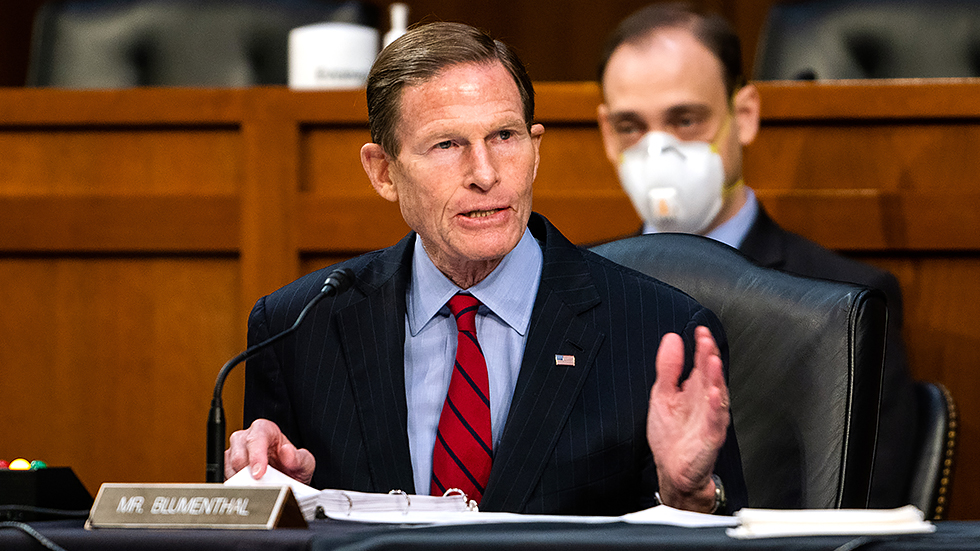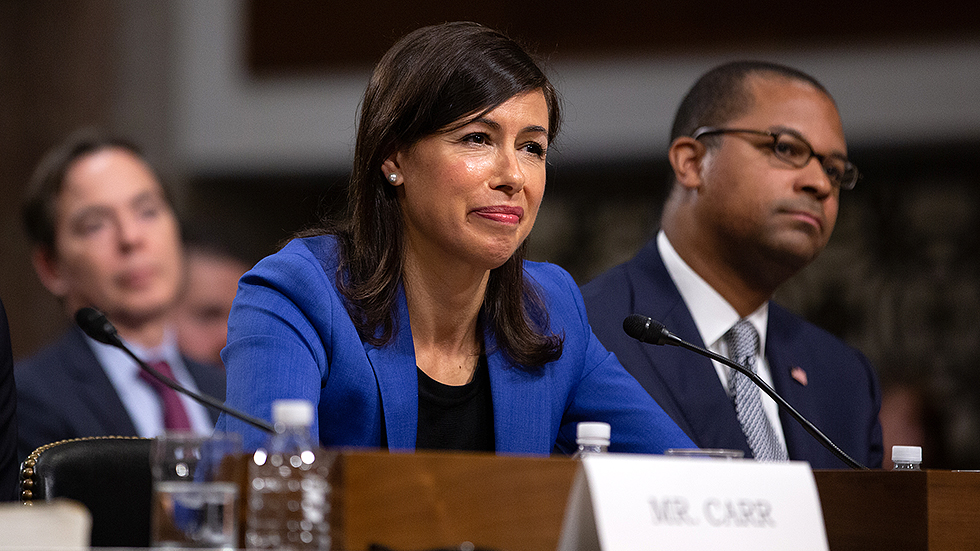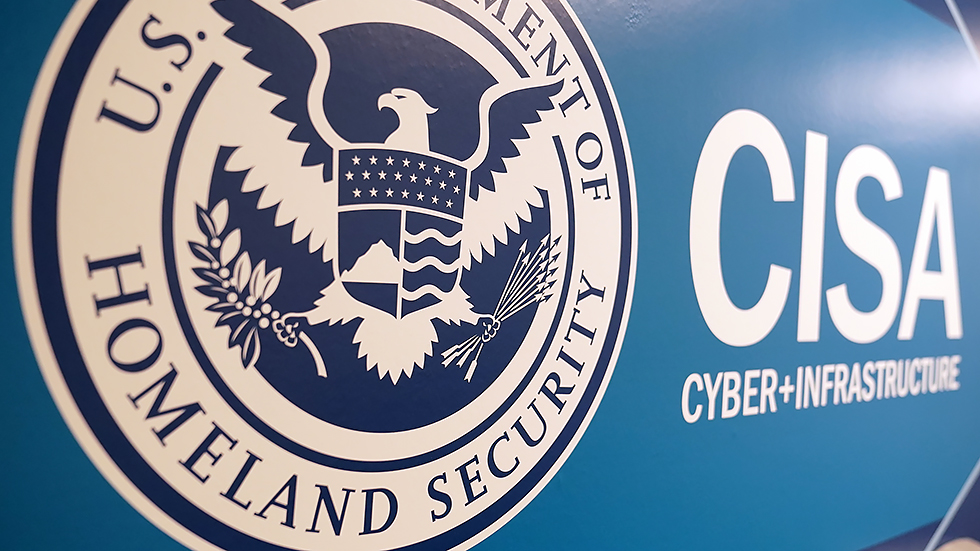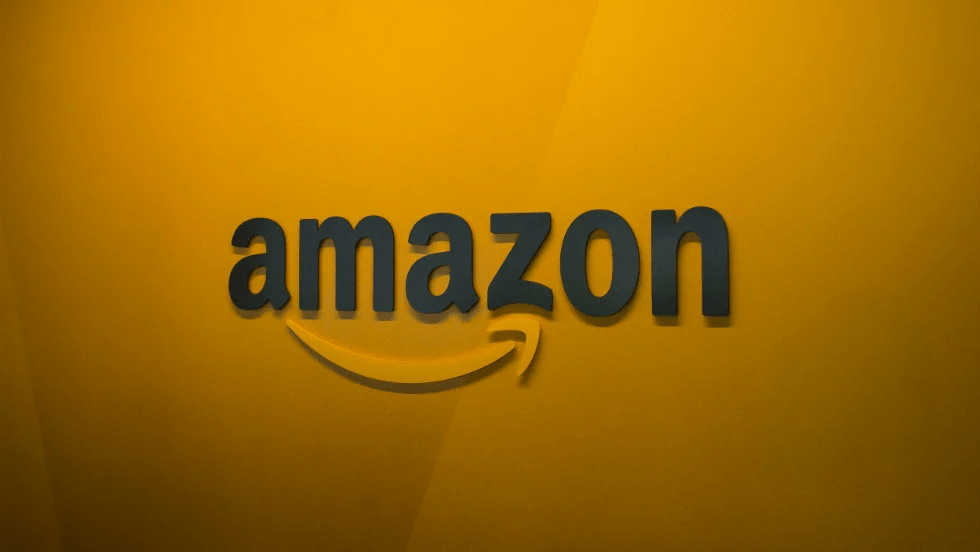Hillicon Valley — TikTok, Snapchat seek to distance themselves from Facebook
Today is Tuesday. Welcome to Hillicon Valley, detailing all you need to know about tech and cyber news from Capitol Hill to Silicon Valley. Subscribe here: digital-staging.thehill.com/newsletter-signup.
Follow The Hill’s cyber reporter, Maggie Miller (@magmill95), and tech team, Chris Mills Rodrigo (@millsrodrigo) and Rebecca Klar (@rebeccaklar_), for more coverage.
Senators grilled executives from TikTok, Snapchat and YouTube Tuesday as they continue to weigh proposals aimed at boosting kids’ online safety. Executives from the companies made one thing clear during the hearing — they don’t want to be tied to Facebook.
Meanwhile, the White House announced the nominations of key leaders for the Federal Communications Commission, and lawmakers rallied around the upcoming announcement from the State Department of a new cybersecurity bureau.
Let’s jump in.
New apps on the chopping block

Executives from TikTok and Snapchat on Tuesday sought to distance themselves from Facebook during their first appearances at a Capitol Hill hearing, as senators pressed them on the impact their platforms have on young users.
Making their case: Snapchat is designed around temporary posts, and unlike Facebook and Twitter, its messages and posts disappear after set times, Snapchat Vice President of Global Public Policy Jennifer Stout emphasized.
Stout used the same argument to defend the app’s filters, including so-called beautification filters that can be used to make users look thinner, add the appearance of makeup, or change their skin.
Stout said filters can “lower the barrier” for conversations between friends to communicate in fun and authentic ways.
TikTok Vice President and Head of Public Policy for the Americas Michael Beckerman stressed that TikTok is a platform for entertainment, and distanced the popular video sharing app by saying it does not use “like” buttons and comments.
Not all are convinced: Senators seemed nonplussed by at least some of those efforts.
“Being different from Facebook is not a defense. That bar is in the gutter. It’s not a defense to say that you are different,” said Sen. Richard Blumenthal (D-Conn.), the chairman of the Senate Commerce consumer protection subcommittee.
Read more about the hearing here.
FCC to (maybe) get a permanent chair

The White House on Tuesday nominated acting Federal Communications Commission (FCC) Chair Jessica Rosenworcel to permanently head the agency and Gigi Sohn to join the panel and give Democrats a 3-2 majority.
Rosenworcel has served as acting chair since the beginning of President Biden’s term and, if sworn in, would be the first woman to head the agency on a full-time basis.
Sohn, a fellow at the Georgetown Institute for Technology Law and Policy, has been a favorite pick for liberal advocacy groups to fill in the commission’s last spot.
Time limit: If both candidates are not confirmed through the Senate by the end of the year, Rosenworcel’s term will expire and Republicans will claim a 2-1 majority on the normally five-member panel, setting up an expedited timeline as lawmakers tussle over funding packages.
CYBER AT STATE
Lawmakers on both sides of the aisle are praising the upcoming establishment of a new cybersecurity bureau at the State Department, following years of advocacy and escalating global attacks.
The move to establish a Bureau of Cyberspace and Digital Policy, first reported Monday by The Wall Street Journal, would help to resolve criticism around the State Department’s leadership on international cyber diplomacy efforts after the decision by former Secretary of State Rex Tillerson in 2017 to merge a former cybersecurity office with another bureau.
Following ongoing criticism of the move, former Secretary of State Mike Pompeo announced the establishment of the Bureau of Cyberspace Security and Emerging Technologies days before former President Trump left office, but lawmakers on both sides of the aisle objected to the setup of the office and said that its establishment was rushed.
Following the confirmation of the office, lawmakers who have long pushed for greater prioritization of cyber diplomacy at the department celebrated the move.
These included House Foreign Affairs Committee ranking member Mike McCaul (R-Texas), the primary sponsor of the Cyber Diplomacy Act. The bipartisan bill, passed by the House earlier this year, would require the State Department take steps similar to the new efforts set to be announced Wednesday with the goal of elevating cybersecurity at the agency.
New election security lead at DHS

A GOP official who challenged former President Trump’s unsupported election claims is expected to get a top position within the Department of Homeland Security, the Cybersecurity and Infrastructure Security Agency (CISA) confirmed Tuesday.
Washington Secretary of State Kim Wyman (R) will serve as the senior election lead at CISA, the key agency tasked with securing critical infrastructure, including elections, against cyber threats.
CISA came under fire by Trump following the 2020 presidential election for its efforts to push back against election-related disinformation and misinformation, with Trump firing former CISA Director Chris Krebs and his administration forcing other top leaders to step down as a result.
“I am honored to be able to share nearly three decades of experience and expertise to support CISA’s efforts to safeguard our election systems from cyber-attacks and enhance the public’s confidence in our elections,” Wyman said in a statement Tuesday. “As I assume this new role, I remain committed to protecting the integrity of our elections and working closely with local and state elections officials nationwide to bolster this foundational pillar of our democracy.”
AMAZON UNDER FIRE
Sen. Marco Rubio (R-Fla.) is calling for the Biden administration to investigate Amazon’s distribution of employee benefits in light of new reporting by The New York Times.
The newspaper reported this weekend that the e-commerce giant has been shortchanging new parents, patients dealing with medical crises and other vulnerable workers on leave.
Workers have been fired due to faulty attendance software and struggled to return to work amid a backed-up and confusing human resources system, according to the Times’s report.
Cyber Chaos in Iran

Iran says that a cyberattack caused nationwide closures of gas stations, according to multiple reports.
“The disruption at the refueling system of gas stations… in the past few hours, was caused by a cyberattack,” Iranian state broadcaster IRIB reported, according to Reuters.
“Technical experts are fixing the problem and soon the refueling process…will return to normal,” IRIB continued.
Iran’s oil ministry said through its news agency SHANA that only sales with cards used for cheaper gasoline were disrupted, adding that people could still buy fuel at a higher rate, the outlet noted.
BITS AND PIECES
An op-ed to chew on: Facebook and Big Tobacco’s common target: Girls and women
Lighter click: “Thank you for reaching out!”
Notable links from around the web:
Who needs Congress? The FTC is already taking on teen privacy. (Protocol / Ben Brody)
Eating Disorders and Social Media Prove Difficult to Untangle (New York Times / Kate Conger, Kellen Browning and Erin Woo)
Seagate violated sanctions by selling hard drives to Huawei, says Senate committee (The Verge / Adi Robertson)
FCC revokes license for China Telecom Americas amid national security concerns (The Record / Dina Temple-Raston)
One last thing: New Amazon Union vote

Workers at a New York Amazon warehouse Monday filed a petition to hold a unionization vote, months after a first attempt at a similar vote in Bessemer, Ala., fell short.
Organizers at the Staten Island facility say they have gathered more than 2,000 signed cards authorizing a worker-led group called the Amazon Labor Union (ALU) to represent them.
The group is headed by Christian Smalls, a former worker at the facility whose firing toward the start of the coronavirus pandemic drew national attention, and is not formally tied to any existing labor unions.
The National Labor Relations Board (NLRB) will have to validate the request to eventually hold a vote. The Staten Island facility has roughly 6,000 workers and the board normally requires at least 30 percent of the proposed bargaining unit to sign cards.
That’s it for today, thanks for reading. Check out The Hill’s technology and cybersecurity pages for the latest news and coverage. We’ll see you Wednesday.
Copyright 2024 Nexstar Media Inc. All rights reserved. This material may not be published, broadcast, rewritten, or redistributed..













